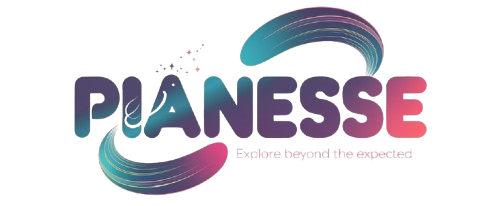Empowering Education: Market Assistant’s Impact

Market assistants play a pivotal role in the educational landscape, serving as a bridge between various stakeholders, including students, educators, and the broader community. Their primary function is to facilitate access to resources and information that enhance the learning experience. By understanding the unique needs of educational institutions and their students, market assistants can tailor their support to ensure that educational goals are met effectively.
This empowerment is not merely about providing resources; it encompasses fostering an environment where students can thrive academically and socially. In addition to resource allocation, market assistants also engage in advocacy for educational initiatives. They work to promote programs that address the specific challenges faced by students and educators alike.
For instance, they may organize workshops or informational sessions that highlight available scholarships, tutoring services, or mental health resources. By raising awareness and providing guidance, market assistants empower students to take charge of their educational journeys, ultimately leading to improved outcomes and a more engaged student body.
Key Takeaways
- Market assistants play a crucial role in empowering education by providing support and resources to educational institutions.
- They support educational institutions by helping them access necessary materials, technology, and resources to enhance the learning experience.
- Market assistants have a significant impact on student success by ensuring that students have access to the tools and resources they need to excel in their studies.
- Collaboration between market assistants and educators is important for creating a seamless support system for students and institutions.
- Effective market assistant engagement in education involves strategic planning, communication, and understanding of the specific needs of educational institutions.
How Market Assistants Support Educational Institutions
Facilitating Communication and Collaboration
Market assistants often serve as liaisons between administrative staff, faculty, and students, ensuring that everyone is informed about policies, programs, and opportunities. They facilitate communication and collaboration among different departments, ensuring a smooth flow of information and resources.
Data-Driven Decision Making
Market assistants are instrumental in gathering and analyzing data related to student performance and institutional effectiveness. By conducting surveys and assessments, they can identify trends and areas for improvement within the educational framework. This data-driven approach allows institutions to make informed decisions regarding curriculum development, resource allocation, and student support services.
Improving Student Outcomes
For instance, if data reveals that a significant number of students are struggling with a particular subject, market assistants can advocate for additional tutoring resources or curriculum adjustments to address these challenges. By doing so, they can improve student outcomes and enhance the overall educational experience.
The Impact of Market Assistants on Student Success

The presence of market assistants within educational settings has a profound impact on student success. By providing personalized support and guidance, they help students navigate the complexities of academic life. This includes everything from assisting with course selection to offering advice on extracurricular activities that align with students’ career aspirations.
Such tailored support can significantly enhance a student’s academic experience, leading to higher retention rates and improved academic performance.
They create inclusive environments where students feel valued and supported.
For instance, by organizing community-building events or peer mentoring programs, market assistants help students forge connections with their peers and faculty members. This sense of community is vital for student engagement and motivation, as it encourages individuals to participate actively in their education rather than feeling isolated or overwhelmed.
The Importance of Collaboration between Market Assistants and Educators
| Metrics | Market Assistants | Educators |
|---|---|---|
| Improved Product Knowledge | High | Medium |
| Enhanced Customer Engagement | High | High |
| Increased Sales | High | Low |
| Effective Marketing Strategies | High | Medium |
| Customer Feedback | Medium | High |
Collaboration between market assistants and educators is essential for creating a holistic educational experience. Educators bring their expertise in pedagogy and subject matter knowledge, while market assistants contribute insights into student needs and institutional resources. This partnership allows for the development of innovative programs that address both academic and non-academic challenges faced by students.
For example, by working together, they can design workshops that not only cover academic content but also incorporate skills such as time management and study techniques. Additionally, this collaboration fosters a culture of continuous improvement within educational institutions. Market assistants can provide valuable feedback to educators regarding student engagement and the effectiveness of teaching methods.
By sharing insights gathered from student interactions, market assistants help educators refine their approaches to better meet the needs of their students. This iterative process ensures that educational practices remain relevant and responsive to the evolving landscape of student needs.
Strategies for Effective Market Assistant Engagement in Education
To maximize the impact of market assistants in education, several strategies can be employed to enhance their engagement with students and educators alike. One effective approach is to implement regular training sessions that equip market assistants with the skills necessary to address diverse student needs effectively. These sessions can cover topics such as cultural competency, conflict resolution, and effective communication techniques.
By investing in their professional development, institutions ensure that market assistants are well-prepared to support students from various backgrounds. Another strategy involves leveraging technology to facilitate communication between market assistants and the student body. Utilizing platforms such as social media or dedicated apps can help market assistants disseminate information quickly and efficiently.
For instance, they can create online forums where students can ask questions or share concerns anonymously. This not only encourages open dialogue but also allows market assistants to identify common issues that may require institutional attention.
Overcoming Challenges in Implementing Market Assistant Programs in Education

Despite the numerous benefits associated with market assistant programs, several challenges can arise during implementation. One significant hurdle is securing adequate funding for these initiatives.
To overcome this challenge, institutions can explore partnerships with local businesses or community organizations that may be willing to sponsor market assistant programs in exchange for visibility or community engagement opportunities. Another challenge lies in ensuring that market assistants are effectively integrated into the existing educational framework. Resistance from faculty or administrative staff who may be skeptical about the role of market assistants can hinder collaboration efforts.
To address this issue, it is essential to communicate the value that market assistants bring to the institution clearly. Highlighting success stories and data demonstrating improved student outcomes can help garner support from all stakeholders involved.
Measuring the Effectiveness of Market Assistant Programs in Education
Measuring the effectiveness of market assistant programs is crucial for demonstrating their value within educational institutions. One approach is to establish key performance indicators (KPIs) that align with institutional goals. These KPIs could include metrics such as student retention rates, academic performance improvements, or increased participation in extracurricular activities.
By tracking these indicators over time, institutions can assess the impact of market assistant programs on overall student success. Additionally, qualitative feedback from students and educators can provide valuable insights into the effectiveness of these programs. Conducting regular surveys or focus groups allows stakeholders to share their experiences and suggestions for improvement.
This feedback loop not only helps refine market assistant initiatives but also fosters a culture of accountability and responsiveness within educational institutions.
The Future of Market Assistants in Empowering Education
As education continues to evolve in response to technological advancements and changing societal needs, the role of market assistants is likely to expand further. With the increasing emphasis on personalized learning experiences, market assistants will be essential in tailoring support services to meet individual student needs effectively. Their ability to analyze data and identify trends will enable them to advocate for innovative solutions that enhance educational outcomes.
Moreover, as educational institutions increasingly prioritize mental health and well-being, market assistants will play a critical role in connecting students with necessary resources and support systems. By fostering partnerships with mental health professionals and community organizations, they can ensure that students receive comprehensive care that addresses both academic and emotional challenges. The future of education will undoubtedly benefit from the continued integration of market assistants as vital contributors to student empowerment and success.
FAQs
What is an education market assistant?
An education market assistant is a professional who supports the marketing efforts of educational institutions, such as schools, colleges, and universities. They may be responsible for tasks such as market research, promotional activities, and communication with prospective students.
What are the typical responsibilities of an education market assistant?
Typical responsibilities of an education market assistant may include conducting market research, assisting with the development of marketing materials, coordinating promotional events, managing social media accounts, and communicating with potential students and their families.
What skills are required to be an education market assistant?
Skills required for an education market assistant may include strong communication skills, proficiency in marketing and social media, attention to detail, organizational skills, and the ability to work effectively in a team.
What education or qualifications are needed to become an education market assistant?
Education market assistants typically need a bachelor’s degree in marketing, communications, or a related field. Relevant work experience or internships in marketing or education may also be beneficial.
What is the job outlook for education market assistants?
The job outlook for education market assistants is generally positive, as educational institutions continue to invest in marketing efforts to attract students. The demand for individuals with marketing skills in the education sector is expected to remain steady.







